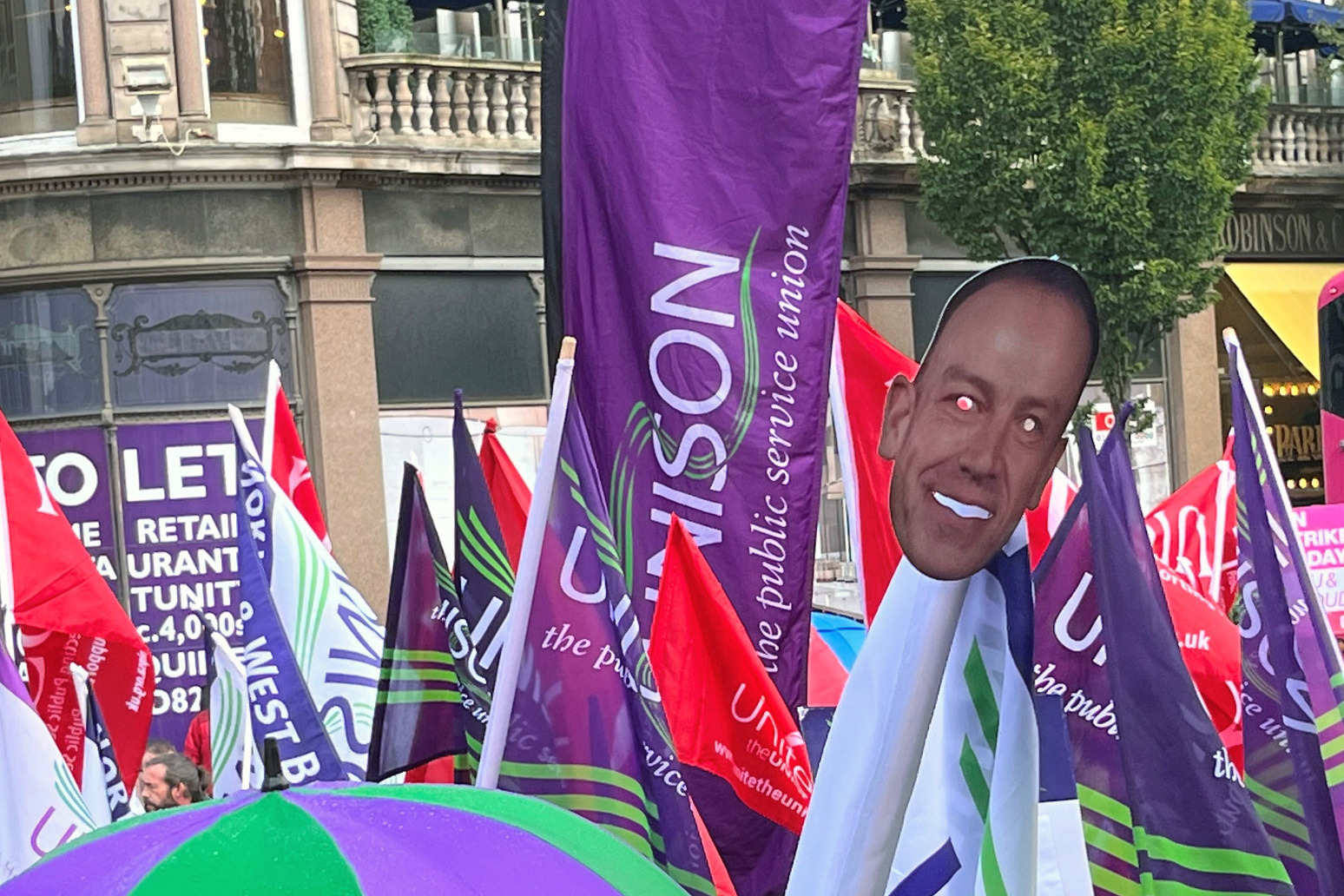
Irish and UK unions warn strikes law could ‘sour’ relations with EU
UK and Irish trade unions have joined forces to attack controversial legislation on strikes, warning it could affect UK-EU relations.
The TUC and ICTU said the new law on providing minimum levels of service during industrial action could put the UK in breach of its labour obligations under the UK-EU Trade and Co-operation agreement.
The two union organisations warned this could lead to “hefty sanctions” and “stoke tensions” between the UK and the EU.
In a joint statement, they said: “This matters for the UK’s future trading relationship with Europe – including the Republic of Ireland.
“It risks putting the UK in breach of its labour standards commitments in the Trade and Co-operation Agreement with the EU – exposing the UK to hefty sanctions, and stoking UK-EU tensions.
“This is the last thing working people in Northern Ireland and the wider UK need, and it’s no good for working people in the Republic of Ireland and the wider EU either.”
TUC general secretary Paul Nowak said: “The Strikes Act is dire for workers in the UK and across Europe.
“The UK’s new laws are an attack on the fundamental right to strike – they’re unworkable, undemocratic and very likely unlawful. This really matters for UK trade with Europe.
“It could put the UK in breach of its post-Brexit trade agreement with the EU. That could mean financial penalties on the UK, which would hurt workers and businesses, and it would sour the UK’s relationship with the EU, including the Republic of Ireland.
“That’s why we’ve joined forces with Irish unions to warn about this pernicious legislation.
“Ministers are playing fast and loose with international commitments because they want to distract from their appalling economic record.”
A Department for Business and Trade spokesperson said: “The minimum service legislation is compatible with all our international trade obligations – many members of the EU already have minimum service levels legislation in place covering a broad range of services.
“We’ve been clear that there needs to be a reasonable balance between the right of workers to strike and the rights of the public, who work hard and expect essential services that they pay for to be there when needed.”
Published: by Radio NewsHub